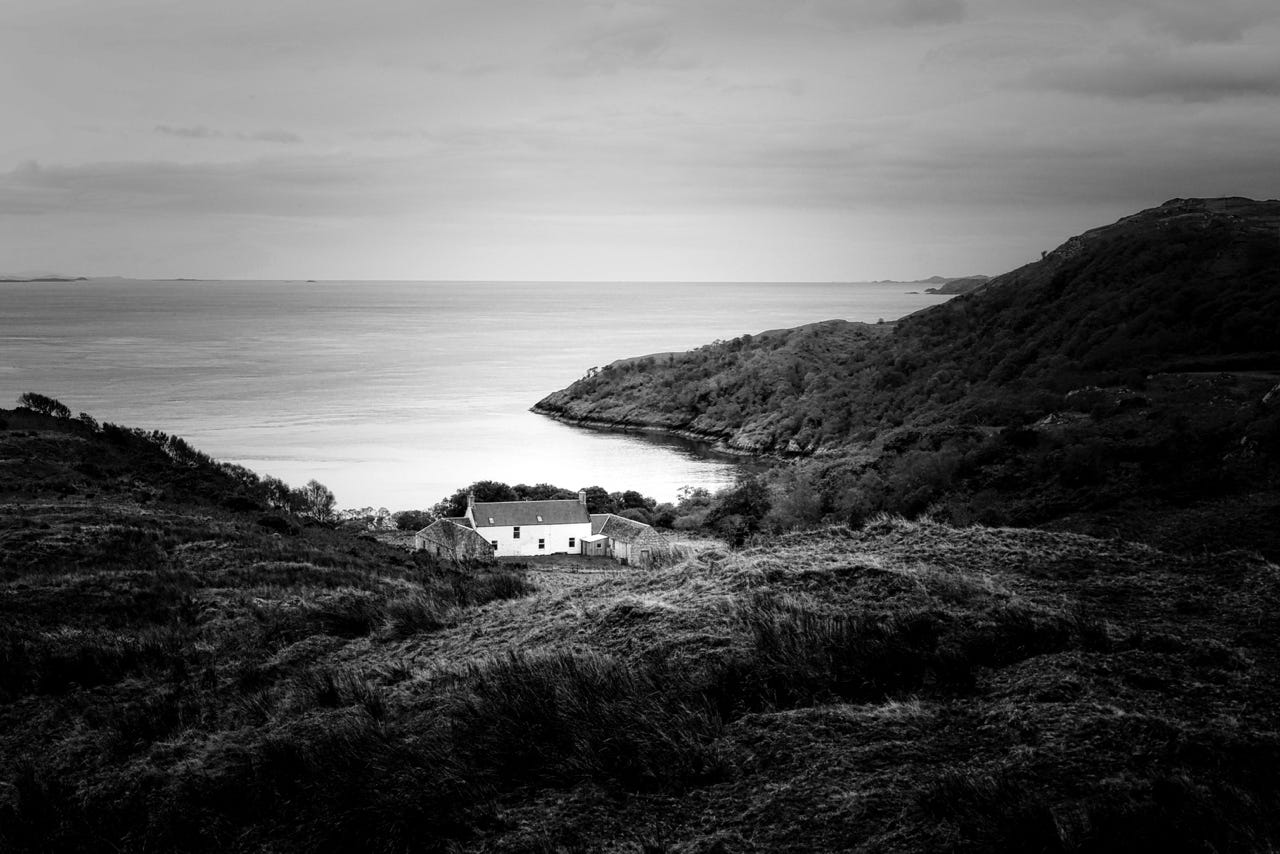The Debatable Land #26: George Orwell's Jura
The author had good reasons to think the Hebrides a better place to live than London
I’m on the Isle of Jura this week and also on holiday. This is a piece from the archive, then, about George Orwell, Nineteen Eighty Four, and the farmhouse on Jura where he wrote his last great work. Many people seem to think Orwell’s decision to move to a Hebridean island was deeply eccentric but in many respects Jura offered him everything he needed.
Much has been written about George Orwell and Barnhill and the Isle of Jura and Nineteen Eighty Four and plenty of it, I am afraid, is the most awful rot. Almost all of it is coloured by one indisputable fact: Jura was his principal residence in the final years of his life until he died, on 21 January 1950, aged 46, from tuberculosis. As a result, and on account of Jura’s remoteness, its allegedly inhospitable climate, the hardship of living there, and the pressure of writing, and revising, Nineteen Eighty-Four, it has typically been assumed Orwell’s time on the island was some kind of …



